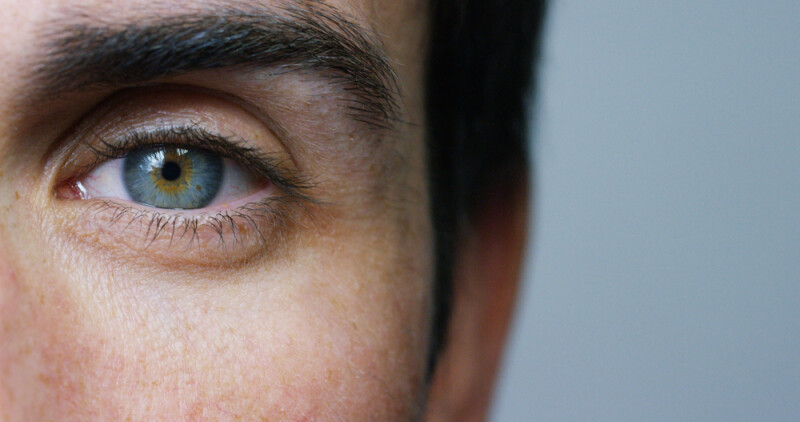Happy #NationalRegisteredDietitianNutritionistDay from Integrative Practitioner!
Today, March 8, 2017, is National Registered Dietitian Nutritionist Day. We at Integrative Practitioner want to give a special shout-out to all of our readers who work as registered dietitians and nutritionists. We've rounded up some of our nutrition and diet-related content and hope you'll enjoy.
How did you celebrate #NationalRegisteredDietitianNutritionistDay? Send us your photos at [email protected] for a chance to be featured on our website and Facebook page.
 Incorporating Nutrition In Your Everyday Practice
Incorporating Nutrition In Your Everyday Practice
For most of us our relationship to food is more than meeting caloric needs. It can be emotional, social, medicinal, health promoting or impeding. For some food is joyous and others torture. For all of us however, eating is our fuel, foundation and prescription to health.
As a medical provider, it is important to learn and develop straight-forward and effective strategies on how to incorporate nutrition into your patients visit.
Click here to read more.
 Could this diet defend against cancer?
Could this diet defend against cancer?
We’ve all heard the saying—we are what we eat. The food we put in our bodies is strongly linked to our health. While no food or nutrient offers a cure-all solution against disease, proper nutrition can help prevent many chronic diseases, including cancer.
To help individuals decide what to eat to optimize their health and lower their risks of cancer and other diseases, The Environmental Working Group (EWG) developed the Cancer Defense Diet.
Click here to read more.
 The “Big Rocks” Cure for Chronic Disease
The “Big Rocks” Cure for Chronic Disease
Research shows that 90 percent of all chronic disease can be traced back to decisions people make in three areas: diet, exercise, and lifestyle. To start reversing this chronic disease crisis, physicians must grapple with the petri dish of Western culture and economic forces patients are living in. The larger culture impacts the decisions an individual can make about what they eat, how much they sleep, and if they exercise.
But with the right insight and tools, physicians can coach patients to make decisions that fight chronic diseases. Rather than jumping to an end result—weight loss, lower blood pressure, or a healthy diet—new research has found simple strategies physicians can use to gradually guide patients to healthier lifestyles.
Click here to read more.
 Incorporating Dietary Concerns and Suggestions Into Patient Visits
Incorporating Dietary Concerns and Suggestions Into Patient Visits
For most of us our relationship to food is more than meeting caloric needs. It can be emotional, social, medicinal, health promoting or impeding. For some food is joyous and others torture. For all of us however, eating is our fuel, foundation and prescription to health. Throughout the presentation, Dr. Schehr will identify clinical pearls for discussing nutrition in a timely, effective and realistic manner and the key to making lasting dietary changes. Dr. Kligler will share successful techniques from his practice and teach and demonstrate the basic elements of motivational interviewing as a tool for clinicians.
This recorded presentation provides straight-forward and effective strategies on how to incorporate nutrition into your patients visit. The lecture outlines key considerations when discussing a patient’s nutritional needs and diet as well as methods for promoting change. You will learn which questions to ask when evaluating dietary intake as well as how to decide on the right diet for your patient.
Click here to listen.
 Epigenetic Revolution in Health and Nutrition
Epigenetic Revolution in Health and Nutrition
The emerging role of epigenetics in gene regulation is causing a paradigm shift in healthcare and nutrition. The Lunasin peptide with its novel epigenetic mechanism of action provides an effective and nutritional alternative against non-communicative, degenerative chronic diseases. Lunasin’s ability to turn on and off genes makes it a viable and potentially groundbreaking treatment option for chronic diseases, such as cancer and heart disease.
But how and why does this peptide work and how can it be used in combination with diet and nutrition for optimal results? This report will outline the effects of Lunasin on the body, providing an overview of epigenetics and outlining the effects Lunasin has on the human body at the cellular and molecular level.
Click here to read more.
 Sugar and cancer: The relationship between diet and chronic disease
Sugar and cancer: The relationship between diet and chronic disease
Does sugar cause cancer? It’s a question posed by many as the anti-sugar movement grows in influence and researchers delve into its effects on the body. It’s widely known that sugar is the driving force behind diabetes and obesity epidemics, and may contribute to development of many chronic diseases. But, does sugar, in its many forms from fine to powdered to corn syrup, actually cause cancer?
The short answer is no, according to Memorial Sloan Kettering Cancer Center President and CEO, Craig Thompson, who studies the relationship between metabolism and cancer. He says internet claims like “refined sugar causes cancer” and “cutting sugar from the diet can treat cancer” are all too common, and completely incorrect. This is unfortunate because there is real science out there regarding diet and cancer, and we need to sort out the fact from the fiction, he says.
Click here to read more.
 Managing mental health with targeted nutrition
Managing mental health with targeted nutrition
Depression, anxiety, memory impairment, and other psychiatric conditions are not only increasing in incidence, but are being treated almost exclusively with medications. However, besides their deleterious side effects, medications do not address the root cause. Patients will respond well, often better, to natural products for depression, anxiety, stress, insomnia, and impaired cognition.
This recorded session reviews the neurobiochemistry of these conditions, how to determine deficiencies with both history and specific lab testing, and how to restore balance with specific nutrients. These include vitamins, minerals, amino acids, herbs, and omega-3 fatty acids. For example, “adaptogens,” including herbs such as ginseng, ashwagandha, and rhodiola, are known to enhance resistance to stress and trauma, and boost mood, energy, immunity, and performance.
Click here to listen.
 Study shows link between early life nutrition and brain resilience to stress
Study shows link between early life nutrition and brain resilience to stress
Micronutrients could reduce brain and memory impairment caused by stress in early childhood development, according to a study conducted in collaboration between the University of Amsterdam, the University Medical Center Groningen, and the Academic Medical Center.
The study found giving a micro nutrient blend of stress-defending methionine and B vitamins led to some neuroprotection in young mice. The results highlight benefits of nutrition, particularly during the early years of mental and cognitive development, as well as possible nutrition interventions for child abuse, neglect, or trauma victims.
Click here to read more.
 Lifestyle is the Medicine—What’s the Spoon?
Lifestyle is the Medicine—What’s the Spoon?
The lifestyle medicine formula is very clear and very discreet, said David Katz, MD, MPH, FACPM, FACLM.
One of the empowering elements for any healthcare professional, and in particular those focused on integrative medicine, is that practitioners can start to improve someone’s overall health by nudging them forward in any of the areas that are most important to well-being—feet, fork, fingers, sleep, stress, and love, as Katz refers to them.
Click here to read more and click here to listen to a recent podcast with Dr. Katz.
Did you know?
March is National Nutrition Month and we will be posting weekly content for our readers. Check our website every week for news and commentary to help registered dietitians and nutritionists in their practices.





















SHARE